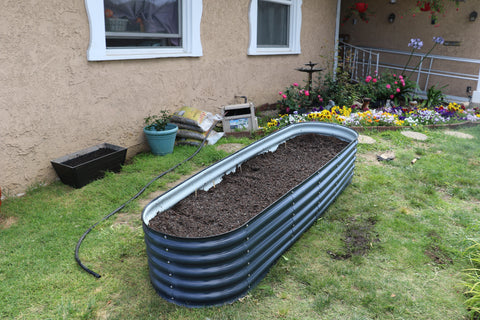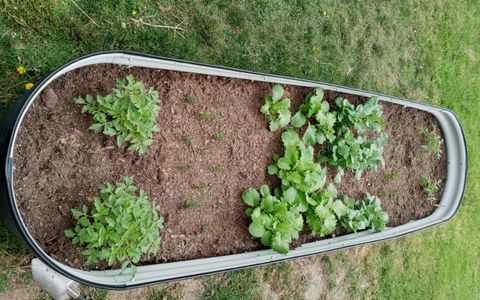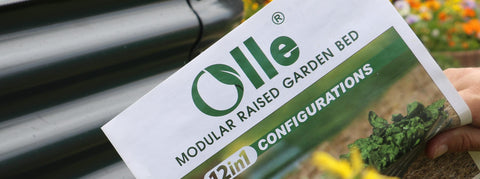Tips from Olle Garden Bed: Protect The Soil By Planting Peas And Beans In Winter Fields
As summer turns to autumn, the bare ground begins to appear on the whole plot. We have two choices: plant and sow more in winter and the following spring, or do something with the newly exposed soil to maintain a good attitude. A well planned vegetable garden can certainly maximize the use of space to produce the highest possible yield of fruits and vegetables. However, there will inevitably be a fallow period, and the ground is not used at all; Winter is the most likely time for this. The following content also has some reference value for raised garden beds.

Keep the soil covered to keep healthy
It is important to remember that soil is not just an inert material for growing plants. Living on every square foot of the ground are billions of microorganisms, most of which live a few inches at the top. This kind of live soup composed of bacteria and fungi works in coordination with many worms, beetles and other organisms to keep the soil in good condition, and its nutrients can be used by plant roots at any time.
If the soil is completely exposed in winter, you will starve its residents. The result is that the growth of the next growing season is not as good as the best - no one wants it! Of course, the solution is to cover it with a lot of organic matter, which will slowly decompose in winter to nourish the soil and its residents. Another solution is to plant green manure or cover crops, which will protect this fragile underground ecosystem and provide materials on the site so that they can be excavated or cut before spring and left on the soil surface as mulch.
As the weather warms, your choice of green manure is limited. Fortunately, the best plant planted for this purpose is one of the most powerful plants for soil cultivation. Peas and beans in the field will not only cover the soil, but also play a strong role in nitrogen content, and provide a large amount of coarse fodder for the soil structure.
Wonderful Beans
Peas and legumes are legumes, belonging to the plant family. They also include green manure from clover and lupin. These wonderful plants can fix nitrogen into the soil, which is due to their smart relationship with rhizobia (one of the many bacteria in the soil), which forms root nodules in the roots of plants to ensure that these plants can easily absorb nitrogen. By cutting peas and beans before flowering in the spring, this additional nitrogen will be available for future crops to promote healthy leaf growth.
Peas or beans sown in autumn will also limit the impact of rain on bare soil, which may form hardened pots on the surface, or worse, wash away nutrients. By competing with weeds in any warm period, they will keep "clean" soil for planting crops in spring. Another additional benefit of field beans is that they help to decompose heavier soil due to their extensive root system.

How to plant peas and beans in winter fields
The nature of green manure means that you need as much mulch as possible, which means that the germination rate is very high. Therefore, land preparation is as important as any other crop. Sow according to the seed package instructions - usually 5-10 cm (2-4 inches) apart and 20 cm (8 inches) apart. In the temperate climate, you can sow till the mid autumn, so that you have enough time to follow up the pigs completed later.
Before planting new crops, your green manure needs to be excavated at least two weeks so that all organic matter has time to start rotting. You can speed up this process by cutting the stem into as small pieces as possible - a combination of sharp edges and stabbing can help achieve this goal. Choose the day when you have many setbacks to solve!
Always cut your peas and beans when they are relatively soft, of course, before they begin to bloom. The formation of flowers and pods will quickly consume most of the nitrogen locked by these rhizobia. Although it is tempting to let them continue to grow, you will lose a lot of benefits. Needless to say, avoid growing more crops in pea and bean families; Nitrogen hungry leafy crops, such as cabbage, are best suited for this.

Field peas and beans are very generous green manure, providing a very economical and effective way to promote soil while keeping it moderate in winter. Give your kitchen garden a little extra love and see how it's different.
